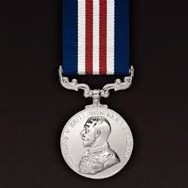CURRIE, David Henry
| Service Number: | 899 |
|---|---|
| Enlisted: | 18 August 1914 |
| Last Rank: | Private |
| Last Unit: | 7th Infantry Battalion |
| Born: | Charlton, Victoria, Australia, July 1895 |
| Home Town: | Huntly, Greater Bendigo, Victoria |
| Schooling: | Not yet discovered |
| Occupation: | Cyanider (gold mine) |
| Memorials: | Goornong Fosterville State School No. 3312 Roll of Honour, Huntly Memorial Hall Honor Roll |
World War 1 Service
| 18 Aug 1914: | Enlisted AIF WW1, Private, 899, 7th Infantry Battalion | |
|---|---|---|
| 19 Oct 1914: | Involvement Private, 899, 7th Infantry Battalion, --- :embarkation_roll: roll_number: '9' embarkation_place: Melbourne embarkation_ship: HMAT Hororata embarkation_ship_number: A20 public_note: '' | |
| 19 Oct 1914: | Embarked Private, 899, 7th Infantry Battalion, HMAT Hororata, Melbourne | |
| 25 Aug 1915: | Involvement AIF WW1, Driver, 899, 7th Infantry Battalion, ANZAC / Gallipoli | |
| 26 Aug 1918: | Honoured Military Medal, "The Last Hundred Days", For bravery in the field near Proyart, France, on the night of 26 August 1918. | |
| 31 Jan 1919: | Discharged AIF WW1, Private, 899, 7th Infantry Battalion, Embarked from Taranto, Italy 8 October 1918 (Special 1914 Leave). Arrived in Australia 20 November 1918. |
Help us honour David Henry Currie's service by contributing information, stories, and images so that they can be preserved for future generations.
Add my storyBiography contributed by Larna Malone
David Henry Currie was born in Charlton, Vic., and was the son of David & Ellen Currie, of Huntly. He was a Cyanider, 19 years & 1 month old, with no previous military service. He was amongst the early volunteers for the Expeditionary Force, enlisting on 18.8.14. The following day he left Bendigo for the Broadmeadows Camp. He was allotted Service no. 899 and appointed to ‘H’ Company, 7th Battalion. While at Broadmeadows he was appointed ‘Driver’.
Prior to Embarkation David Henry Currie was Presented with a silver wristlet watch, a sovereign pouch and wallet by the residents of Huntly. He was also Presented with a service certificate from the Sir Henry Barkly Lodge, M.U.
The 7th Battalion left Broadmeadows Camp on 18 October, 1914, and embarked for service overseas on board HMAT ‘Hororata’. Arriving in Egypt the battalion moved into camp at Mena, at the foot of the pyramids. (6/12/14)
In January, 1915, the Australian force was re-organized. In the 7th Battalion ‘G’ and ‘H’ Companies joined to form the new ‘D’ Company. This meant that all the men from Northern Victoria were together in one Company.
The 7th Battalion was part of the force which landed at Anzac Cove on 25th April, 1915. David Currie did not accompany the battalion to the Dardanelles. He had been attached to the Transport section and remained at the Australian Base. He rejoined the battalion at Anzac on 25/8/15.
On 13/9/15 the battalion embarked for Lemnos & marched to Sarpi Camp. The health of the men was of great concern and it was hoped to improve this by an extended period of rest. They returned to Anzac on 21/11/15.
In December preparations began for the evacuation of Anzac. The 7th Battalion was withdrawn on the night of December 19th. They embarked for Lemnos and then disembarked in Egypt (6/1/16). David Henry Currie was Promoted to Company Driver on 16/1/16. Two weeks later he rejoined the battalion from the Transport unit.(1/2/16).
David Henry Currie went on to serve with distinction on the Western Front. He was Awarded the Military Medal ‘for bravery in the field”. Date of action 26/8/18.
He RTA on 8/10/18. Special 1914 Leave.
“The First Lot. 7th Battalion. The first men of the Bendigo district to volunteer for service in the First World War.”: Larna Malone.











